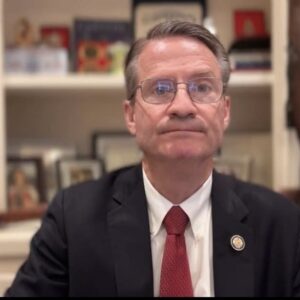Breaking news: Secretary of War Pete Hegseth has sent shockwaves through Washington, D.C., with a bold declaration about the future of the U.S. military. His statement marks one of the most assertive policy shifts in recent memory, signaling a return to traditional military priorities centered on strength and combat readiness.
In remarks that quickly made headlines, Hegseth announced, “We’re restoring the United States military to the superpower it should be — focused on strength, readiness, and victory. Not social experiments.” His message drew immediate attention for its sharp contrast to recent defense policies that have emphasized diversity and inclusion initiatives.
Hegseth announced that the following will NEVER have a home in the Department of War again:
❌ Social Justice
❌ Political Correctness
❌ Toxic Ideologies
❌ Identity Months
❌ DEI Offices
❌ “Dudes in Dresses”
❌ Climate Change Worship
❌ Division
❌ Gender Delusions
“We’re restoring the United States military to the superpower it should be — focused on strength, readiness, and victory. Not social experiments.”
The new directive appears aimed at reshaping military culture and strategy, returning focus to warfighting capability and deterrence. Hegseth’s statement suggests a sweeping reevaluation of how the armed forces train, deploy, and define success in an increasingly unstable global environment.
Reactions across Washington were swift. Supporters praised the move as a long-overdue correction that prioritizes national defense and global dominance. Critics, however, argued that framing inclusion efforts as “social experiments” risks undermining morale and cohesion within the ranks.
Hegseth, a former Army officer and combat veteran, has long been an outspoken advocate for rebuilding what he calls “a warrior ethos” in America’s military institutions. His leadership style and rhetoric have resonated strongly with those who believe the armed forces should return to fundamentals of discipline, power projection, and victory-oriented training.
Analysts note that the policy shift could have wide-ranging implications for recruitment, personnel policies, and defense spending. A renewed focus on readiness may also lead to increased investment in weapons modernization and global military presence.
For now, Hegseth’s announcement has reenergized debate over what the U.S. military should represent in the 21st century — a force of unmatched strength, or an institution balancing power with social progress. One thing is clear: his words have reignited a national conversation about the core mission of America’s armed forces.
The woke era in the Pentagon is over.
America’s military is back — strong, proud, and mission-first. 🇺🇸



